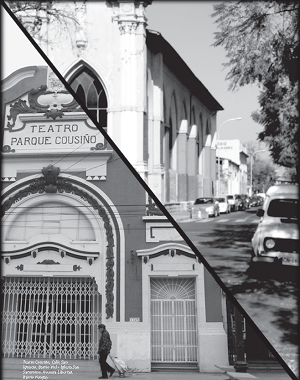Resumen
Desde un punto de vista político y participativo, el presente artículo expone dos casos altamente paradigmáticos en relación al Patrimonio Nacional y el activismo ciudadano en Chile: las zonas típicas o pintorescas de los barrios Viel y Yungay-Brasil, ubicados ambos en la comuna de Santiago, y declarados como zonas patrimoniales por el Consejo de Monumentos Nacionales en 2009. Se utiliza el concepto de patrimonio tanto en su componente material como inmaterial, constituyéndolo como una expresión significativa de la identidad humana; a su vez, se valoriza el impacto de la participación ciudadana en la patrimonialización de los barrios. Mediante el uso de entrevistas, revisión de prensa y observaciones en los barrios, se concluye que el proceso de patrimonialización generado por las comunidades
locales en ambos casos y consolidado en 2009, representa una alternativa real para generar una efectiva valoración del lugar en donde se habita, el cual, además, posee riesgos que pueden afectar tanto al patrimonio en sí mismo como el bienestar de la comunidad. Para futuras investigaciones se sugiere trabajar en torno a la institucionalidad patrimonial chilena y al impacto de los migrantes en zonas patrimoniales.
La revista Apuntes se encuentra registrada bajo la licencia Creative Commons Reconocimiento 4.0 Internacional. Por lo tanto, esta obra se puede reproducir, distribuir y comunicar públicamente en formato digital, siempre que se reconozca el nombre de los autores y a la Pontificia Universidad Javeriana. Se permite citar, adaptar, transformar, autoarchivar, republicar y crear a partir del material, para cualquier finalidad (incluso comercial), siempre que se reconozca adecuadamente la autoría, se proporcione un enlace a la obra original y se indique si se han realizado cambios. La Pontificia Universidad Javeriana no retiene los derechos sobre las obras publicadas y los contenidos son responsabilidad exclusiva de los autores, quienes conservan sus derechos morales, intelectuales, de privacidad y publicidad.
El aval sobre la intervención de la obra (revisión, corrección de estilo, traducción, diagramación) y su posterior divulgación se otorga mediante una licencia de uso y no a través de una cesión de derechos, lo que representa que la revista y la Pontificia Universidad Javeriana se eximen de cualquier responsabilidad que se pueda derivar de una mala práctica ética por parte de los autores. En consecuencia de la protección brindada por la licencia de uso, la revista no se encuentra en la obligación de publicar retractaciones o modificar la información ya publicada, a no ser que la errata surja del proceso de gestión editorial. La publicación de contenidos en esta revista no representa regalías para los contribuyentes.


